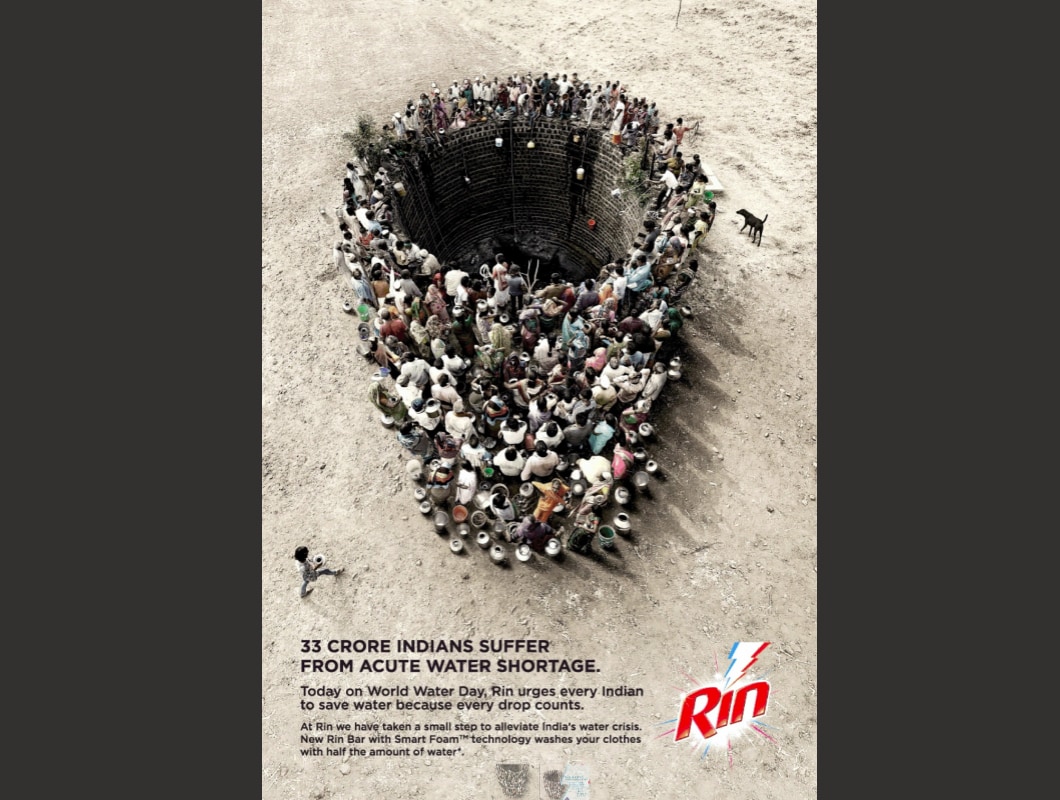In the ever-evolving landscape of advertising and communication, the term “creativity” has become a double-edged sword. As someone who has dedicated nearly three decades to this industry, producing award-winning and groundbreaking work, I often find myself reflecting on the true impact of our creative endeavours. Is our work merely winning accolades, or is it genuinely serving the purpose it was intended for? This question is more pressing than ever, urging us to reconsider and re-position the role of creativity in advertising.
Creativity Beyond Awards
When I started searching for award worthy work and whether they have done any social good, I was tempted to critique others’ work, pointing out flaws from an armchair perspective. However, a more constructive approach is to scrutinize our own creations. For instance, consider a campaign I was involved in for Unilever India’s Rin brand. Conceptualized by JWT and shot by the legendary Prashant Godbole, this ad aimed to promote Rin’s smart foam technology—a patented innovation that reduces water consumption during laundry by creating less foam, thus requiring less rinsing.
The ad was not just about visually stunning content; it had a clear, purpose-driven message. Released on World Water Day, it sought to educate consumers about water conservation, aligning with Unilever’s broader ESG (Environmental, Social, and Governance) goals. While the ad could be seen as a contender for awards (which it won too) due to its shocking visuals and innovative concept, its primary intent was to drive meaningful change.
Purpose-Driven Advertising
The Rin campaign exemplifies how advertising can transcend mere aesthetics and accolades. It demonstrates a commitment to educating consumers and addressing real-world issues. Unilever’s investment in R&D to develop the smart foam technology reflects a genuine effort to create a product that benefits both consumers and the environment. The ad’s success in mainstream media and its on-ground activations underscore its dual role in marketing and education.
Yet, the challenge remains in measuring the tangible impact of such campaigns. Can we quantify how many Liters of water have been saved due to this technology? While this is a difficult metric to track, the intent and honesty behind the campaign are undeniable.
Re-positioning Creativity
As the industry progresses, it is crucial to evaluate whether our creative outputs are fulfilling their intended purposes. Are they merely winning awards, or are they making a real difference? This reflection should prompt us to re-position our creative strategies to prioritize impact over accolades.
Creativity should not just be about producing striking visuals or clever copy. It should be about creating work that resonates, educates, and drives positive change. This requires a shift in mindset—one that values long-term impact and consumer empowerment over short-term recognition.
A Call for Dialogue
I invite my colleagues and peers to engage in this dialogue. Let’s examine award-winning work through the lens of its broader purpose. Does it contribute to societal betterment? Does it align with the brand’s core values and goals? By fostering an open, participative discussion, we can collectively elevate the standards of our industry.
In conclusion, the true measure of good advertising lies in its ability to make a tangible difference. By re-positioning creativity to serve a greater purpose, we can ensure that our work not only sells more products but also contributes to a better world. Let’s challenge ourselves to create advertising that counts, both in terms of commercial success and societal impact.
The author Ashish Limaye is the CEO and Co-Founder of Craving Digital Studio Private Limited. Views expressed are personal.
